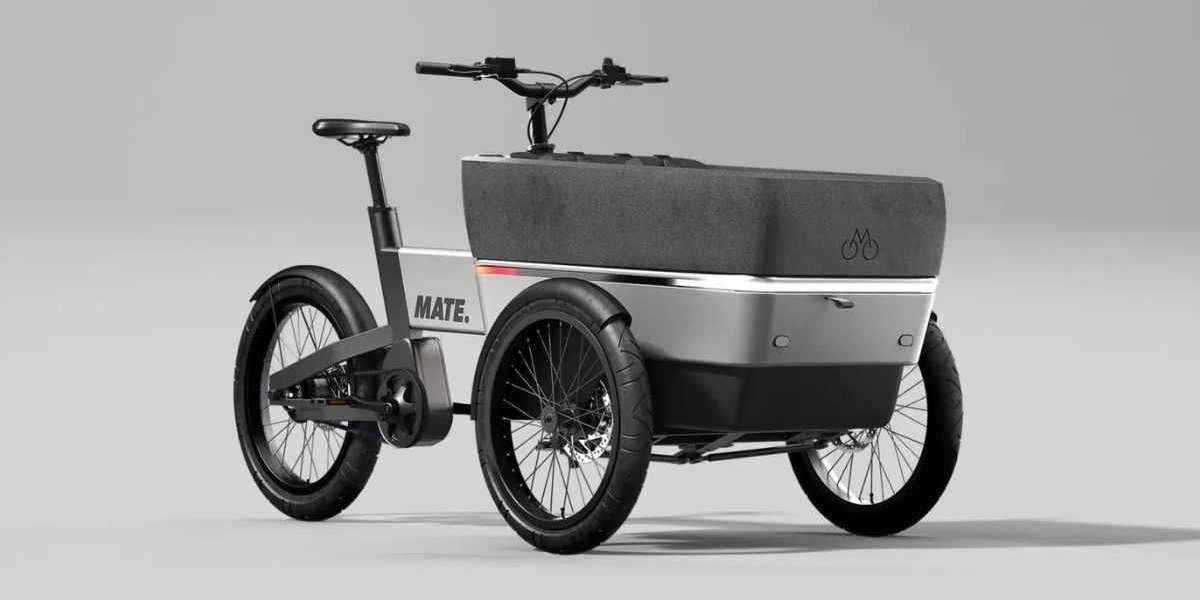The electric cargo bicycle market has emerged as a sustainable and efficient solution for urban freight transportation, blending the benefits of pedal power with electric assist to meet the evolving needs of businesses and consumers. These versatile vehicles play a crucial role in addressing congestion, reducing emissions, and promoting eco-friendly last-mile delivery solutions in urban areas.
History:
The concept of cargo bicycles dates back to the late 19th century when businesses utilized human-powered cargo tricycles for local deliveries. With the advent of electric propulsion systems and advancements in battery technology, electric cargo bicycles (e-cargo bikes) gained prominence in the early 21st century. This marked a significant shift towards a more sustainable and cost-effective alternative to traditional delivery vehicles.
Key Features and Configurations:
Electric cargo bicycles come in various configurations, offering a range of cargo capacities and designs to cater to diverse business requirements. Common designs include longtails, which extend the rear frame for larger cargo areas, and box bikes, featuring a cargo compartment in the front. These bikes are equipped with electric motors that provide pedal-assist or full electric propulsion, enabling riders to effortlessly transport goods over short to medium distances.
Market Players and Innovations:
The electric cargo bicycle market has seen increased participation from both established bicycle manufacturers and new entrants specializing in electric mobility solutions. Companies such as Tern, Riese Müller, and Urban Arrow have introduced innovative e-cargo bike models designed for different cargo loads and applications. Notably, advancements in battery technology, motor efficiency, and smart connectivity features have enhanced the performance and appeal of these electric cargo bicycles.
Urban Logistics and Last-Mile Delivery:
One of the primary drivers of the electric cargo bicycle market is its role in urban logistics and last-mile delivery. As e-commerce continues to grow, businesses are seeking sustainable alternatives to traditional delivery vans. Electric cargo bicycles offer a nimble and environmentally friendly solution, allowing companies to navigate congested urban areas efficiently while reducing carbon emissions and operational costs.
Regulatory Support and Infrastructure:
Several cities and regions around the world have recognized the potential of electric cargo bicycles in enhancing urban mobility and reducing environmental impact. In response, regulatory frameworks and infrastructure development initiatives have been implemented to support the integration of e-cargo bikes into existing transportation networks. This includes the creation of dedicated bike lanes, incentives for businesses adopting electric cargo bikes, and regulations governing their use in urban spaces.
Challenges and Future Prospects:
Despite the numerous advantages, the electric cargo bicycle market faces challenges such as limited cargo capacity compared to larger delivery vehicles and the need for comprehensive charging infrastructure. Additionally, addressing safety concerns and ensuring compatibility with existing traffic regulations are ongoing considerations for the industry.
The future prospects of the electric cargo bicycle market appear promising, with increasing interest from logistics companies, governments, and consumers alike. Continued technological advancements, collaborative efforts to improve infrastructure, and a growing awareness of environmental sustainability are expected to drive the widespread adoption of electric cargo bicycles as a mainstream solution for urban freight transportation.
Recent Developments and Global Adoption:
In recent years, the electric cargo bicycle market has experienced notable developments and witnessed increased adoption on a global scale. Major cities across Europe, Asia, and North America have implemented pilot programs and initiatives to encourage the use of electric cargo bicycles for both commercial and personal transportation. These initiatives include subsidies, grants, and regulatory changes aimed at promoting the benefits of these eco-friendly alternatives.
Collaborations and Partnerships:
As the demand for electric cargo bicycles rises, collaborations and partnerships have become a common trend in the industry. Traditional logistics companies are partnering with electric bicycle manufacturers and technology firms to optimize fleet management systems, improve route planning, and integrate electric cargo bicycles into their overall logistics networks. Such collaborations aim to enhance the efficiency and reliability of last-mile delivery services while minimizing environmental impact.
Integration with Smart Technologies:
The integration of electric cargo bicycles with smart technologies has become a focal point for innovation in the market. Advanced telematics, GPS tracking, and connectivity features enable real-time monitoring of electric cargo bikes, optimizing delivery routes, ensuring security, and enhancing overall fleet management. These smart technologies not only improve operational efficiency but also contribute to the seamless integration of electric cargo bicycles into smart city ecosystems.
Consumer Adoption and Micro-Mobility Trends:
Beyond commercial applications, electric cargo bicycles are gaining popularity among individual consumers for personal use. The rise of micro-mobility trends in urban areas, coupled with an increased awareness of environmental issues, has led to a surge in the adoption of electric cargo bikes for daily commuting, shopping, and recreational purposes. This shift in consumer behavior is contributing to the diversification of the market and its penetration into various lifestyle segments.







